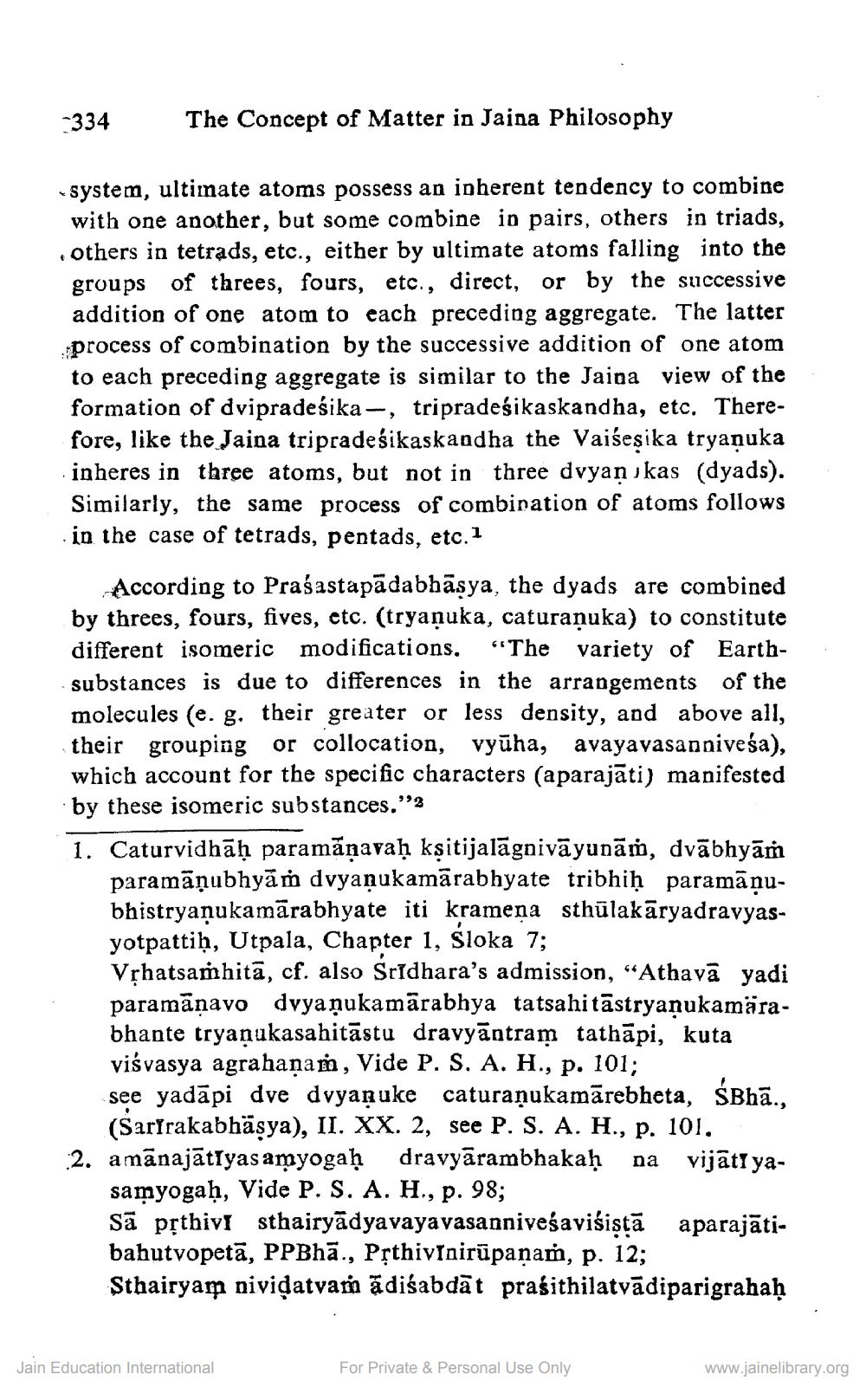________________
The Concept of Matter in Jaina Philosophy
-system, ultimate atoms possess an inherent tendency to combine with one another, but some combine in pairs, others in triads, others in tetrads, etc., either by ultimate atoms falling into the groups of threes, fours, etc., direct, or by the successive addition of one atom to each preceding aggregate. The latter process of combination by the successive addition of one atom to each preceding aggregate is similar to the Jaina view of the formation of dvipradeśika-, tripradeśikaskandha, etc. Therefore, like the Jaina tripradeśikaskandha the Vaiśesika tryanuka inheres in three atoms, but not in three dvyankas (dyads). Similarly, the same process of combination of atoms follows in the case of tetrads, pentads, etc.1
4
334
According to Prasastapādabhāṣya, the dyads are combined by threes, fours, fives, etc. (tryaṇuka, caturaṇuka) to constitute different isomeric modifications. "The variety of Earthsubstances is due to differences in the arrangements of the molecules (e. g. their greater or less density, and above all, their grouping or collocation, vyūha, avayavasanniveśa), which account for the specific characters (aparajāti) manifested by these isomeric substances."2
1. Caturvidhāḥ paramaṇavaḥ kṣitijalāgnivāyunāṁ, dvābhyāṁ paramāņubhyaṁ dvyaṇukamārabhyate tribhiḥ paramāņubhistryaṇukamārabhyate iti kramena sthūlakāryadravyasyotpattiḥ, Utpala, Chapter 1, Śloka 7;
Vṛhatsamhita, cf. also Śrīdhara's admission, “Athava yadi paramāṇavo dvyaṇukamārabhya tatsahitāstryaṇukamārabhante tryanukasahitāstu dravyāntram tathāpi, kuta viśvasya agrahanam, Vide P. S. A. H., p. 101; see yadapi dve dvyaṇuke caturaṇukamārebheta, ŚBhā., (Sarfrakabhäṣya), II. XX. 2, see P. S. A. H., p. 101. 2. amānajātīyas amyogah dravyārambhakaḥ
na vijāti ya
samyogaḥ, Vide P. S. A. H., p. 98;
Sā pṛthiv
bahutvopetā, PPBhā., Pṛthivfnirūpaṇaṁ, p. 12; Sthairyam niviḍatvaṁ ādiśabdāt prasithilatvādiparigrahaḥ
sthairyādyavayavasanniveśavišiṣṭā
Jain Education International
For Private & Personal Use Only
aparajāti
www.jainelibrary.org




